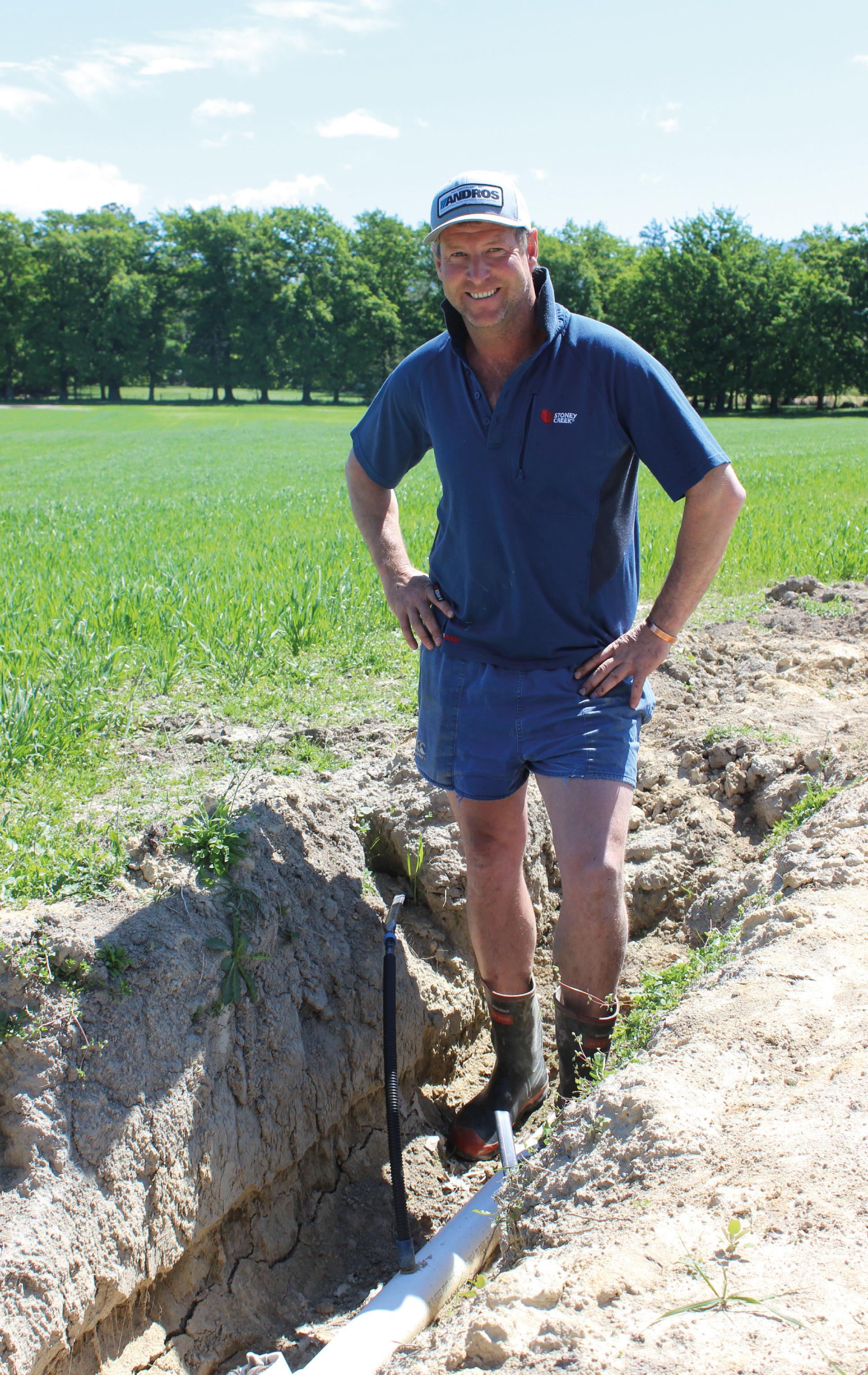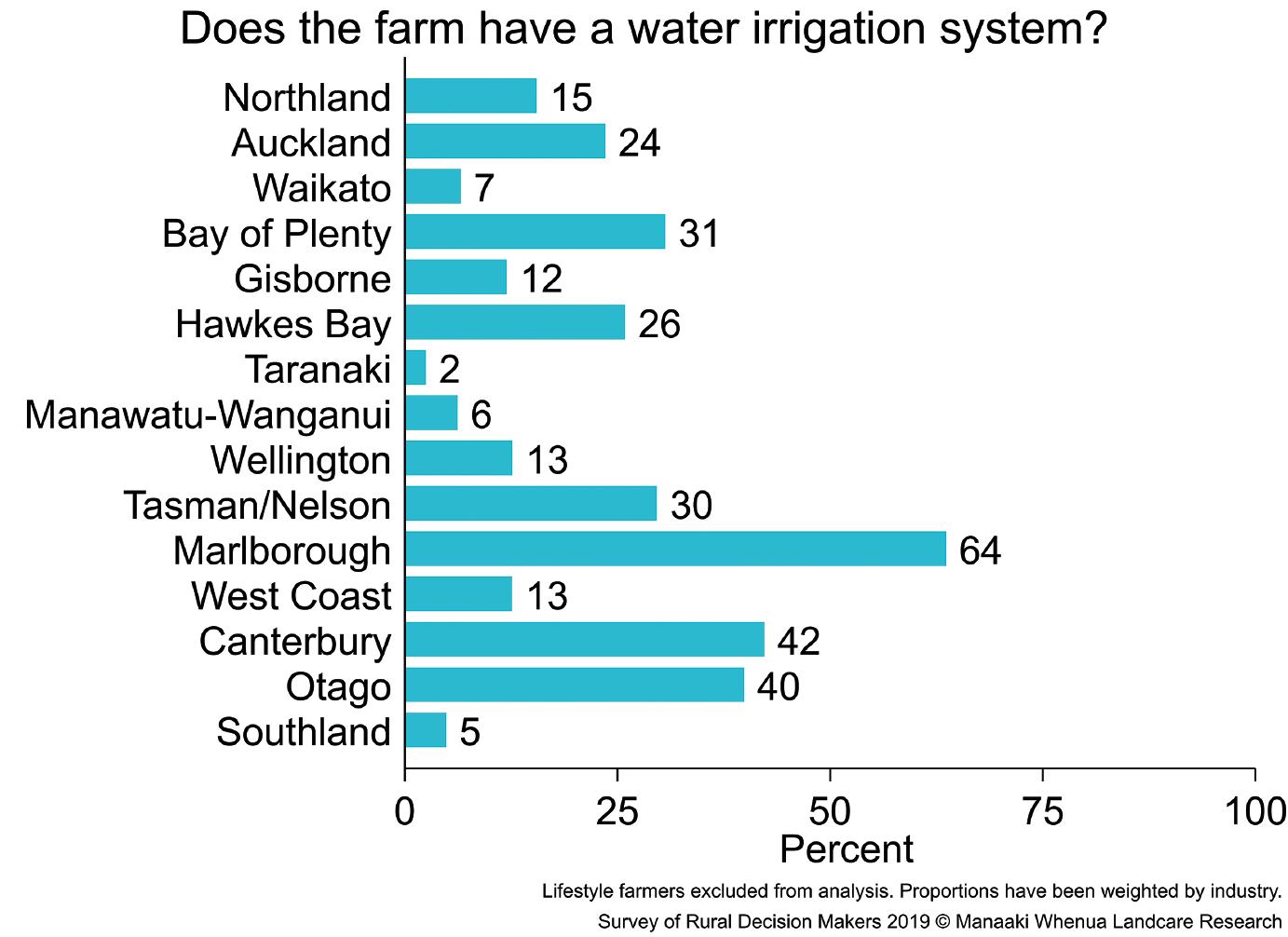
3 minute read
A closer look at irrigation and decision making
Growing in times of change
Peas about to get sprayed with fish protein at ‘Phoenix Park’ in Southbridge.
Advertisement
Every day is different and being able to react to that and adapt is crucial when it comes to arable farming says a Canterbury farmer.
Matt McEvedy is an arable farmer in Southbridge, southwest of Christchurch on a 300 hectare fully irrigated property. It has been in the McEvedy family for over 120 years, making Matt fifth generation farmer on the property. He farmed ‘Phoenix Park’ in partnership with his parents Pat and Lynley, alongside wife Lizzie and one-year-old son Sebastian.
The farm’s soils were home to a range of crops from wheat, spinach, grass seed and carrot seeds to processed peas and beans, and land was also leased to grow broccoli and potatoes.
Mr McEvedy said growing vegetable seeds had become a real focus over the past ten years and it would not have been possible without irrigation.
“My father installed irrigation on the property in the 1980s – it’s great but it also brings its cost and challenges however, without it we wouldn’t be able to farm what we do and it would be too risky to grow vegetable seeds.”
“Irrigation allows us to do what we do and provide a range of quality crops to the market.”
Phoenix Park was also home to lamb fattening and heifer grazing, however Mr McEvedy said arable farming was where his passions lie.
“Growing vegetable seeds is a real challenge, but it makes it a highlight. They’re more rewarding but they’re also riskier as they’re very susceptible to weather and pollination issues.”
Mr McEvedy was building before he took over the reins of the farm in 2007.
“I’d grown up farming so had a good background in it, however lacked knowledge about what the arable industry was really about.”
Since then he had involved himself in extension groups beyond the farm gate and said he would encourage anyone else to do so as it had had a pivotal influence on his career.
Although apprehensive at first, he took the opportunity to get involved, “there weren’t many young cropping farmers in a similar situation that I knew of at the time.”
“It was really good – I found likeminded people who were enthusiastic about the industry”
“Being young and inexperienced I could ask the stupid questions and feel comfortable about doing so … having the access to the knowledge base and asking the questions to have someone come back to you with information is actually invaluable.”
During Mr McEvedy’s farming career he said his three biggest challenges had been timeliness, choosing the right times to do things both in everyday work to choosing what to do ahead of time; making decisions to manage a diverse range of crops “they’re all very different and you need to make sure you are recognising what is going on between them because it can be different from paddock to paddock; and legislative changes have made for getting your head around something different all the time.
Mr McEvedy said although these challenges made for hard work it was one of his favourite parts of being an arable farmer “you’re a full-time problem solver, being constantly
challenged every day with something different is testing and I’m sure many farmers will agree but finding solutions to these challenges is extremely satisfying – albeit difficult.”
In future, he said he saw the arable industry getting faster, with constant changes specifically changes in direction of the market.
Albeit that the current environment could be overwhelming, Mr McEvedy said you had to make time to take opportunities such as doing trials and learning more.
“If we don’t do trials and research we can’t expect to improve. It’s very easy to become siloed because you spend so much time focused on your own farm and your own business.”












